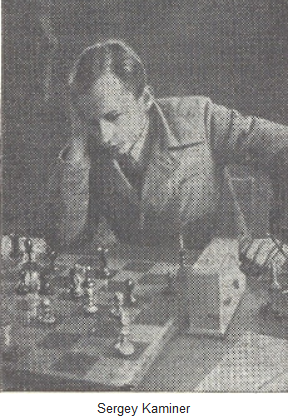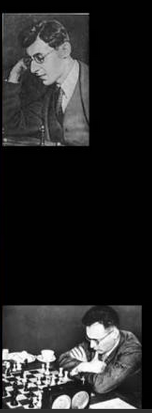The faithful listeners were present to hear the good word of the Master.
There were few technical incidents, except for the noise of the pipes and a crash of the Master's computer.
The end was cut off abruptly with the time limit of the conference depriving the listeners of the usual greetings and thanks.
Below is the report.
Master's words
From an author considered "very serious" I was reading at the end of 2015: in a pawn endgame where a bKg4 has to capture doubled wPs on h4 & h5 to free a bPg7 (while a wPa runs to Queen), he writes ...Kxh4 then ...Kxh5 and gives the win to White (in the end Qh8+ then Qg8+ winning the Qg1). Whereas ...Kxh5 first, then ...Kxh4 draws, since Qh8+ Kg3! Qg7+ Kh2! But when I say that all these authors, whatever their nationality (some writing -- that is probably better -- only articles) do not do a good job, sometimes even are clowns, some come to grumble, without ever answering on the substance, that I probably have, how do they say, ah yes! an oversized ego (sic) to dare to hold such a speech. They have picked up this expression I don't know where, and bring it out at every opportunity.

It is a strange phenomenon. At our time when the questioning of civilization principles goes far beyond the reasonable, we would have to accept the establishment of new sacred cows. To limit ourselves to the world of chess, certain players, authors, referees, journalists, federal officials... would become untouchable, the criticism of all these people unwelcome, not to say forbidden. But, as Vitaly Halberstadt said, "here, my thoughts capture such a heretical turn that I shudder and put down my pen".
Two mats and a pat as an aperitif. Then a study given recently in a solutions competition, but human: a rarity.
One can be ranked 2600 while ignoring an essential principle of the Bishop vs Pawn struggle: always attack the opponent's pawns to weaken them. And when I say "ignore", it is not "forget" in the fire of a game, but well and truly in the analysis. To be compared with Knight against pawns, examined in the course of last June 7, where the same principle applies.

A missed opportunity in an old attacking game between two... attackers. The saving move was made by a casual spectator!
A month ago, the "game of the day" was reduced to an extract, including a collection of analyses. Today, the game is certainly complete, but it is still the analysis that interests us. On several levels: that of the winner (who was to become world champion 13 years later), that of the best German player of the late 20th century, and finally the refinements of the cybernetic monster. One could say that the result was not very brilliant for the so-called "future world champion". However, he was largely beaten, 70 years later.
Guess by whom.

Among the numerous nice moves of this long analysis, one will appreciate that the Black Bishop b4 (in focal position) inspires at the same time two sacrifices, that of the White Bishop in a3 and, in echo, that of the White Rook in e1! A precision: the Black conductor is the editor of the "Knight's endgame" section of the opus signed by Averbach.


The fairy tunes strive to show a wide variety of genres and pieces. Training: a few 2# gleaned by loitering once again on Marjan's site, two classical 3#, a curious synthesis of two 5# themes, a little marvel in 6 moves from "King Artur", who brings out 4 model mates from his hat. helpmate 2-moves: Forsberg-type Alsatian quadruplets (we change the nature of the piece on a given square) like the Köko fairy triplets, two 3# helpmates with two solutions, a funny long helpmate. Finally a nice selfmate to look for.
This class was originally scheduled to take place in a week. Being by nature rather anti-crastinator, I don't regret its advancement. On the other hand, I'll have a hard time giving a date for the next one. In a month, two, three?
Good luck though
Add a comment